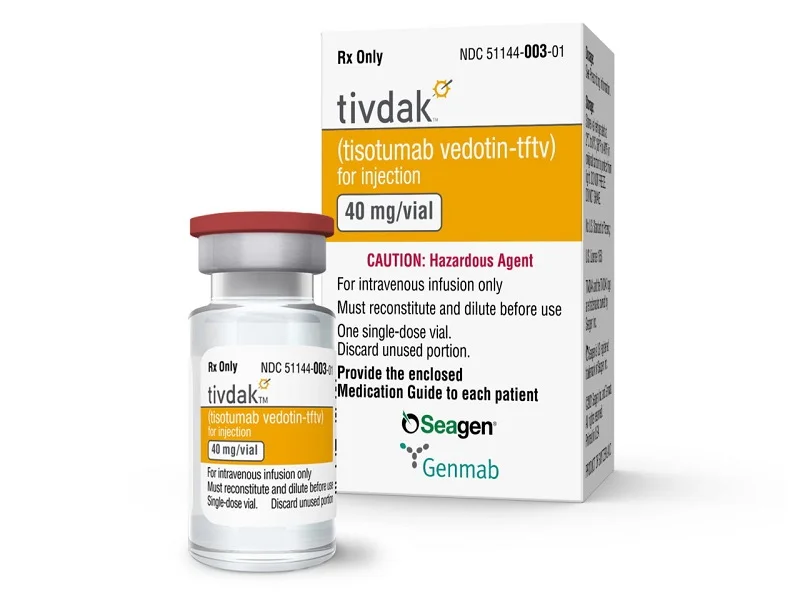
Japan Approves TIVDAK® for Advanced Cervical Cancer Treatment
Genmab A/S has announced that the Japan Ministry of Health, Labour and Welfare (MHLW) has approved TIVDAK® (tisotumab vedotin) for the treatment of advanced or recurrent cervical cancer that has progressed following chemotherapy. This approval marks a significant milestone as TIVDAK is the first and only antibody-drug conjugate (ADC) available for cervical cancer patients in Japan, offering a new therapeutic option for those with limited treatment alternatives.
Rising Cervical Cancer Incidence and Unmet Needs
In recent years, cervical cancer incidence and mortality rates in Japan have been on the rise, particularly among women under the age of 50. The increasing burden of this disease underscores the urgent need for innovative and effective treatment strategies. Patients with recurrent or metastatic cervical cancer who experience disease progression after first-line therapy often face limited treatment choices, making new therapeutic advancements crucial.
According to Dr. Aikou Okamoto, M.D., Ph.D., Chief Professor of the Department of Obstetrics and Gynecology at The Jikei University School of Medicine, “Patients with advanced or recurrent cervical cancer generally have a poor prognosis. The advent of new treatment options, especially for second-line or later therapy, is much needed. Cervical cancer treatment has advanced in recent years, but the approval of tisotumab vedotin as an ADC is particularly meaningful as it introduces a novel mechanism of action expected to prolong overall survival. This is encouraging news for both patients and healthcare professionals.”
Clinical Evidence Supporting TIVDAK’s Approval
The approval of TIVDAK in Japan is based on data from the global Phase 3 innovaTV 301 clinical trial, a randomized, open-label study that assessed the efficacy and safety of TIVDAK compared to chemotherapy in patients with advanced or recurrent cervical cancer who had previously undergone chemotherapy. The trial enrolled 502 patients, including 101 Japanese participants.

The study successfully met its primary endpoint of overall survival (OS), demonstrating a 30% reduction in the risk of death for patients treated with TIVDAK compared to chemotherapy. The hazard ratio (HR) was 0.70 (95% CI: 0.54-0.89), with a two-sided p-value of 0.0038. Median OS was 11.5 months (95% CI: 9.8-14.9) in the TIVDAK group compared to 9.5 months (95% CI: 7.9-10.7) in the chemotherapy group. Secondary endpoints, including progression-free survival (PFS) and confirmed objective response rate (ORR), were also met, further reinforcing TIVDAK’s efficacy in this patient population.
Safety and Tolerability Profile
TIVDAK was generally well-tolerated in the study, though like all treatments, it was associated with some adverse drug reactions. Among the 250 patients (including 50 Japanese participants) treated with TIVDAK, 219 (87.6%) experienced some form of adverse reaction. The most frequently reported adverse reactions (≥20%) included:
- Conjunctivitis (76 patients; 30.4%)
- Nausea (73 patients; 29.2%)
- Peripheral sensory neuropathy (67 patients; 26.8%)
- Alopecia (61 patients; 24.4%)
- Epistaxis (nosebleeds) (57 patients; 22.8%)
These findings align with the safety profile observed in previous studies of tisotumab vedotin, and healthcare providers will need to monitor patients for these potential side effects to ensure optimal management.
A New Era in Cervical Cancer Treatment
TIVDAK’s approval in Japan marks a significant advancement in the treatment paradigm for cervical cancer. The ADC’s novel mechanism of action allows for targeted delivery of a cytotoxic agent to tumor cells, minimizing damage to surrounding healthy tissue. This precision-targeted therapy offers a new level of hope for patients whose disease has progressed despite previous treatments.
Judith Klimovsky, M.D., Executive Vice President and Chief Development Officer of Genmab, emphasized the importance of this approval: “As a company, we understand the urgent need for patients with advanced cervical cancer whose disease has progressed. This approval marks an important step forward in transforming the treatment paradigm in Japan, ultimately bringing new hope and possibility to patients and their loved ones.”
Future Implications and Access to TIVDAK
With its approval in Japan, TIVDAK now has the potential to become a standard second-line treatment for advanced or recurrent cervical cancer. The introduction of an ADC for cervical cancer expands the treatment landscape, providing a more effective and potentially life-extending option for patients who previously had few alternatives.
As healthcare professionals and regulatory bodies continue to monitor the real-world effectiveness and safety of TIVDAK, its adoption in clinical practice will be closely observed. Further research and post-marketing studies may help refine treatment guidelines and optimize patient outcomes.





